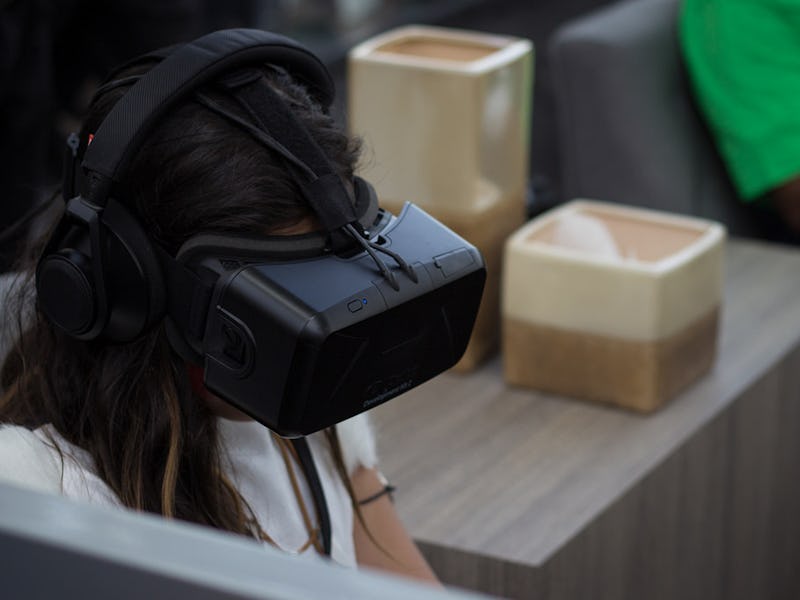The Thirteenth Step for Alcoholics in the Future Might Be Virtual Reality
How VR fights addiction.

Virtual reality is poised to troop far outside the realms of holographic Minecraft. A new — and very small, with only 12 participants — study from South Korean researchers at Chung-Ang University Hospital demonstrates that virtual reality might be able to help combat diseases like alcoholism.
Over a five-week program, the study participants had 10 session of VR treatment. The therapies consisted of three increasingly unpleasant scenarios. Via the study, published Thursday in the Journal of Studies on Alcohol and Drugs:
Relaxation. The therapist asked the participant to recall a pleasant situation while a landscape was projected on the screen. The participant experienced a sense of well-being and felt very relaxed. After 5 minutes, the therapist measured the subject’s muscle tone, mood, and anxiety level.
High-risk situation. Virtual drinking situations can stimulate multiple sensory functions, including visual, auditory, and olfactory. Visual stimulation comprised alcoholic beverages (e.g., soju, 10 ml) and drinking environments (e.g., Korean-style bacon restaurant scene). (Soju is a popular alcoholic beverage in South Korea, with 20% alcohol by volume.)
Aversive situation. The aversive stimulation situation also comprised visual, auditory, and olfactory stimuli and involved viewing a scene of people vomiting after drinking. While the participants watched the vomiting scene, the therapist asked them to slowly drink a small amount of kefir, which is a gelatinous, fermented milk drink that includes bacteria and yeast and has a tart taste that has been equated to that of vomitus.
The patients’ brain metabolism slowed, which the study authors say indicates reduced cravings for booze. It remains to be seen how effective this style of VR therapy pays off for alcoholics in the long run. But other small studies have previously shown that VR can help veterans improve PTSD symptoms, by exposing them to virtual Iraqs or Afghanistans in a controlled environment. The goal isn’t Clockwork Orange brainwashing, but overcoming demons in the comfort of home.